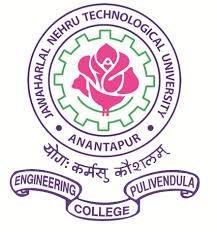M.Tech. in Reliability Engineering offers excellent career prospects in diverse industries and leverages specialized skills for system dependability.
Future Scope & Benefits: M.Tech. in Reliability Engineering Course
An M.Tech. (Master of Technology) in Reliability Engineering equips graduates with specialized skills to ensure the dependable performance of complex systems, products, and processes. Reliability engineering is vital across industries, including manufacturing, aerospace, automotive, energy, and telecommunications. In this article, we will explore the future scope and the myriad benefits of pursuing an M.Tech. in Reliability Engineering.
Future Scope: M.Tech. in Reliability Engineering Course
Increasing Demand:
- The demand for reliability engineers is on the rise as industries recognize the critical role they play in ensuring the consistent and safe operation of systems and products.
- As technology advances, there is an increased focus on reliability to meet customer expectations and regulatory requirements.
Technological Advancements:
- Future advancements in technology will require even greater attention to reliability.
- Industries like aerospace, autonomous vehicles, and renewable energy will rely heavily on reliability engineers to maintain and enhance system dependability.
Global Expansion:
- With globalization, companies operate across borders, necessitating rigorous reliability standards to maintain consistent product quality worldwide.
- Reliability engineers with international expertise will be in demand.
Quality and Safety:
- Ensuring quality and safety will remain paramount in industries like healthcare, transportation, and energy.
- Reliability engineers are at the forefront of maintaining these standards and addressing emerging challenges.
Data-Driven Reliability:
- The integration of data analytics and the Industrial Internet of Things (IIoT) will shape the future of reliability engineering.
- Professionals skilled in data-driven reliability will be invaluable in optimizing performance and predicting failures.
Benefits of Pursuing an M.Tech. in Reliability Engineering:
Specialized Expertise:
- Graduates possess in-depth knowledge of reliability principles, statistical analysis, and quality control, making them specialists in their field.
- Their expertise is sought after across industries where reliability is crucial.
Diverse Career Opportunities:
- Reliability engineers can choose from various career paths, including reliability analysis, quality management, risk assessment, and system safety engineering.
- Opportunities span multiple sectors, from manufacturing to healthcare and beyond.
Competitive Salaries:
- Due to their specialized skills, reliability engineers often command competitive salaries.
- High demand for their expertise contributes to favorable compensation packages.
Global Relevance:
- Reliability engineering is a global discipline, that offers opportunities for international assignments and collaboration.
- Graduates can work on projects with global impact.
Research and Development:
- Graduates can engage in cutting-edge research and innovation.
- They contribute to developing advanced reliability techniques and technologies.
Leadership Roles:
- With experience, reliability engineers can assume leadership roles, overseeing teams and making critical decisions affecting product quality and safety.
Cross-Industry Applicability:
- Reliability skills are transferable across industries, allowing professionals to explore diverse sectors throughout their careers.
Problem Solving and Impact:
- Reliability engineers tackle complex challenges, ensuring the reliability of systems and products that impact people's lives.
- Their work directly contributes to safety, quality, and customer satisfaction.
Key Roles for M.Tech. Graduates in Reliability Engineering:
Reliability Engineer:
- Responsibilities include conducting reliability analyses, developing maintenance strategies, and ensuring system dependability.
Quality Assurance Manager:
- Overseeing quality control processes, inspections, and certifications to meet industry standards.
System Safety Engineer:
- Focusing on system safety assessments, hazard analysis, and risk mitigation strategies in critical applications.
Data Analyst/Reliability Data Scientist:
- Analyzing data to predict failures and optimize maintenance, leveraging data analytics and IoT technologies.
Researcher and Innovator:
- Contributing to research and development efforts in academia, research institutions, or industrial R&D centers to advance reliability science.
Consultant and Auditor:
- Providing expert guidance to organizations on reliability best practices, audits, and quality improvement initiatives.
Future Trends and Advancements: M.Tech. in Reliability Engineering Course
The field of reliability engineering continues to evolve with several notable trends and advancements:
Digitalization and IIoT: Reliability engineers will leverage data from IIoT sensors to enhance predictive maintenance and system performance.
Machine Learning and AI: Advanced algorithms will aid in data analysis, helping predict failures and improve decision-making.
Sustainable Reliability: As sustainability becomes more critical, engineers will focus on enhancing the reliability of eco-friendly technologies, such as renewable energy systems and electric vehicles.
Quantum Computing: Quantum computing's potential for complex simulations may revolutionize reliability analysis, allowing for more accurate predictions.
Reliability in Autonomous Systems: Ensuring the reliability of autonomous vehicles, drones, and robots will be a significant challenge, driving demand for experts in this area.
 2 Years
2 Years
 Post Graduate
Post Graduate
 Engineering
Engineering
 Full Time
Full Time



 back
back

